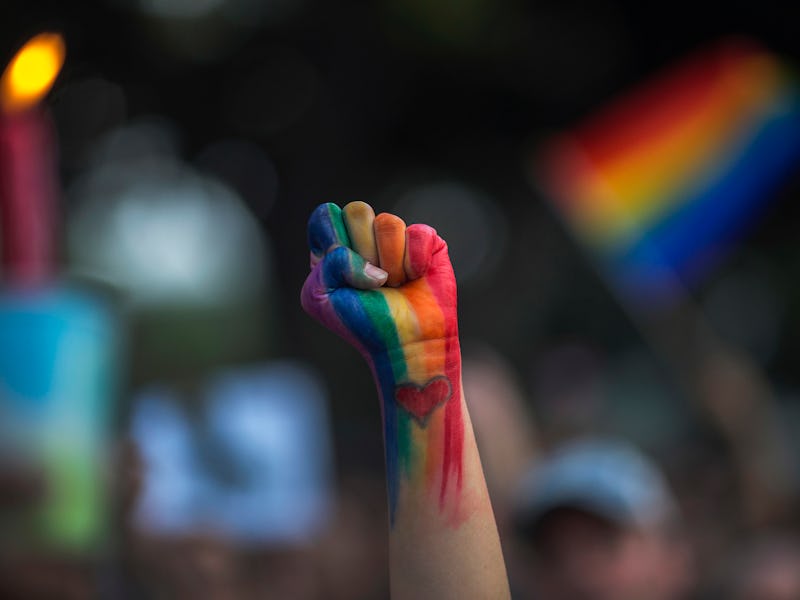Logo TV Censors Itself on National Coming Out Day
Because everyone can be proud, but not everyone can be proud publicly.

National Coming Out Day marks a day of celebration for openly queer people and the opportunity to talk about how they stepped out of the closet. This exchange of narratives invites queer people to celebrate their own journeys while gaining a better understanding of the struggles other people in the community have overcome. While National Coming Out Day salutes the bravery it takes to live authentically, Logo TV has seized the opportunity to pay tribute to those who, for one reason or another, haven’t come out.
The gay TV channel, which hosts popular shows like RuPaul’s Drag Race and Finding Prince Charming, spent National Coming Out Day boosting the visibility of closeted people. Logo is is censoring its queer-related content with “digital pixelation, black bars, and bleeped audio.” Network officials launched “Day of Disruption” as part of Logo’s Global Ally initiative to stand in solidarity with queer people who are not safe living their truths. This serves as a reminder that coming out — no matter how beleaguered a process — is a privilege.
This is what an episode of RuPaul's Drag Race looks like with Logo's Day of Disruption censoring
Most people who have come out struggled with self-acceptance and telling friends and family. But queer people in the United States don’t have to fear execution or imprisonment when they exit the closet. Not everyone is so lucky. There are plenty of people globally who can’t come out for fear of violence. There are some in American as well, people who have no reason to fear their government and everyone reason to worry about their neighbors.
Logo’s National Coming Out Day campaign not only amplifies queer voices silenced by oppressive cultures and governments — it also nods to queer people who could come out without being killed or imprisoned but haven’t yet. It acknowledges the straight-passing girl who is trying to muster the courage to come out to her friends that call girls with short hair “dykes,” the flamboyant boy who will tell people he’s gay on his own terms even though everyone already knows, and the transgender teen that’s struggling to explain to their parents what it means to embody a gender identity different than the one assigned at birth. It acknowledges that coming out refers to a variety of experiences and that this variety is what makes the queer community an exemplary model of diversity.
The fact that almost everything is censored or blurred reminds us not to take our freedom to live truthfully for granted.
LGBTQ activism aims to eventually eradicate society’s assumptions about how people are supposed to be so that the process of coming out becomes obsolete, but the world we live in today still demands official proclamations. National Coming Out Day urges queer people to reclaim the overhyped and often stressful process of coming out by relishing the diversity of experiences shared.